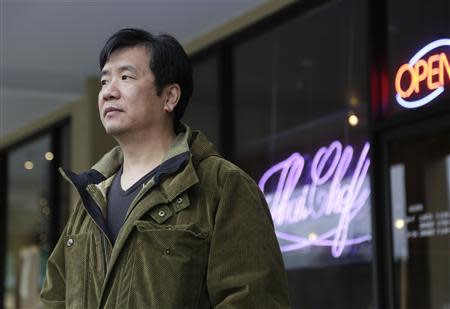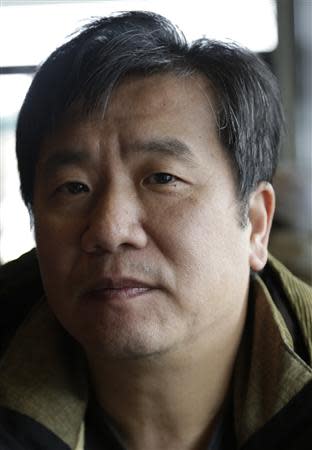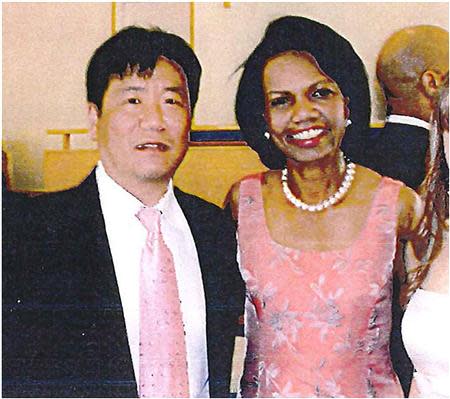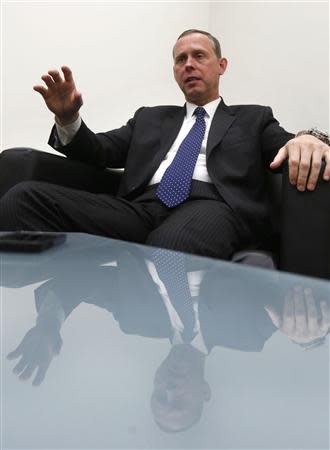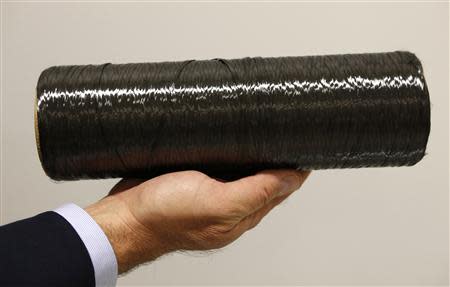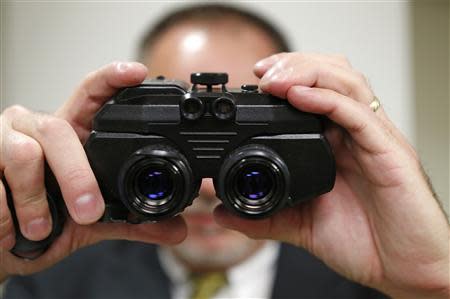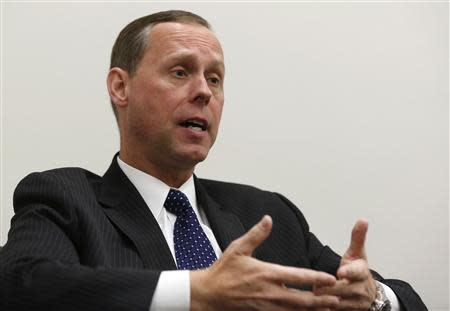Special Report: Hunting for U.S. arms tech, China taps legion of amateurs
By Duff Wilson and John Shiffman SEATTLE (Reuters) - In its quest to bypass embargoes and obtain the latest U.S. military technology, China isn't only relying on a cadre of carefully trained spies. It's also enlisting a growing army of amateurs. Their orders come indirectly from the Chinese government and take the form of shopping lists that are laundered through companies with ties to Beijing. The recruits who buy the weapons and system components for those companies are scientists, students and businessmen, and they appear to be motivated more by profit than ideology. As one U.S. Homeland Security official put it, the Chinese "flood the zone with buyers" - a strategy that significantly complicates U.S. efforts to stop the flow of American armaments to China. "When you have nation-states that go outside the normal intelligence agencies and open it up to any person … it just exponentially opens the door for bad guys," said Robert Anderson Jr, assistant director for counter-intelligence at the Federal Bureau of Investigation. Today, investigations into arms trafficking linked to China have swelled to at least 350 active cases - up by more than 50 percent since 2010, according to a Reuters review of confidential U.S. government records. The total number is likely higher than 350 because the count does not include many cases that began as regulatory inquiries or investigations into other crimes. U.S. officials also say their China counter-proliferation case load is growing at a faster pace than investigations linked to any other nation. About two-thirds of the cases prosecuted by U.S. officials since 2005 involved people of Chinese ancestry, a Reuters analysis of court records shows. That includes Chinese citizens living in China or residing legally inside the United States, and U.S. citizens with family ties to China. China's defense ministry says Beijing's efforts to modernize its military are rooted in research, not thievery. "Some people always accuse China of stealing other countries' technology when China makes progress in weaponry development," it said in a statement to Reuters. "Such notions are baseless." U.S. government agents say many past cases and active investigations demonstrate how individuals who have left China - and appear to hold little allegiance to the Chinese government - have become players in Beijing's effort to procure military components. Such was the case of Lian Yang, a 49-year-old software engineer who once worked for Microsoft Corp and had family ties to an anti-government group in China. In March 2011, the father of two pleaded guilty to conspiracy to violate U.S. arms trafficking laws for buying radiation-hardened microchips and making plans to send them to China. Yang served nearly 11 months in prison and another four months under house arrest. He was released in March. In interviews, Yang characterized his efforts as "stupid" and "wrong." But he said the U.S. government "grossly exaggerated" what he did. Yang said a college friend in China had approached him about buying the microchips. But that friend, Yang said, was simply a businessman like himself, looking to obtain the components for another buyer - and ultimately, for the Chinese government. A LOOK AT 280 CASES Reuters reviewed confidential investigative records gathered by the FBI, including hours of secret recordings, transcripts and emails. They show Yang as an arms trafficking novice, motivated by money and casting about for others willing to help him for a cut of the profits. In emails and transcripts from an FBI undercover operation, Yang spoke of the urgency to obtain the U.S.-made components for China's military and satellite programs. "They're very firm, and they want it yesterday," Yang said on one FBI recording about his buyers in China. "They want it so badly. They have the funds." On recordings, Yang told a family friend - who had turned government informant - that they could share in $1 million a year in profits. Later, as his plans shrank, he was working on a much smaller sale to net a few thousand dollars. "That's your typical case, the kind you see almost every day," the FBI's Anderson said. "Here's a guy who's just trying to make a buck." Reuters reviewed 280 arms export and embargo cases brought by the U.S. federal government during the past eight years. (The review didn't include cases involving Mexican gun smugglers, a crime that's distinct from those that jeopardize U.S. military forces). Of the 280 cases, 66 - almost one in four - involved China. A Defense Department report to Congress this year, based on some of these investigations, said China supports its military procurement and modernization with "illicit approaches that involve violations of U.S. laws and export controls to obtain key national security technologies." The cases reveal layers of buyers and sellers that connect to Beijing. In one recent case, investigative records contain the names of 31 Chinese companies - almost all of them state-controlled - that sought to buy smuggled military-grade communications gear. In another case, a Chinese procurement network used a series of five bank transfers between China and California to cloak a half-million dollar purchase of satellite components. DRONE PARTS AND GYROSCOPES About a third of the cases linked to China involved military aerospace technology, such as the radiation-hardened microchips. Arms traffickers have been caught in the last five years with military-grade gyroscopes and accelerometers, essential for China's space and missile programs; unmanned aerial vehicle or drone parts; and microwave amplifiers used for weapons guidance and radar jamming. The individuals trying to obtain these components in the United States ranged from business people to professors, from citizens of China to permanent U.S. residents and American citizens. Many had access to technology that cannot legally be exported to China - or enough technical know-how to try to get it. Among the Chinese citizens recently convicted: •A missile expert working for a New Jersey defense contractor. He took company files, including design data for missiles, rockets and drones, to a technical conference in China. •A Shanghai broker who tried to smuggle from New York thousands of pounds of high-grade carbon fiber, which can be used for military purposes. •A Harvard-educated businessman who set up a company in Massachusetts that he used for years to smuggle millions of dollars worth of American-made electronic warfare, missile and satellite components to Shenzhen. A handful of Americans also have been recently convicted. A man in a small New York town tried to smuggle $100,000 worth of carbon fiber to China. An export control manager at a Pennsylvania manufacturer falsified records that allowed dozens of sensitive communications devices to be shipped to China and other nations. He later explained to authorities that he had been "too busy" to obtain the proper licenses. "None of these guys are hardened criminals - they are businessmen," said Craig Healy, a senior Homeland Security Investigations official who directs the U.S. government's counter-proliferation center. "But they give very little thought to the consequences, that the little widget they are selling could be used at some point to kill an American or allied soldier." The United States imposed an embargo on arm sales to China after the 1989 Tiananmen Square massacre. Under the embargo, anything designed for police or military use has been banned for export to China; "dual-use" items - those that have both civilian and military applications - require U.S. government permission before they can be sent there. Lian Yang's own shopping list had seven items the Chinese government wanted to buy in bulk for space and missile systems. Two items could be legal to export with U.S. government permission. Five - including the microchips - were totally restricted because of their importance to weapons systems. "You can't operate missiles or satellites without radiation-hardened chips because the environment is so hostile in space that the electronics will be fried or disrupted," said James Lewis, an arms expert with the Washington-based Center for Strategic and International Studies. "Somebody in China sent out a tasking: get me those chips." CHINESE BUYER Yang had left China for the United States in 1988 and became a U.S. citizen in 1999. He sponsored his parents, too; his mother, he said in interviews with Reuters, had been persecuted by the Chinese government for her involvement in the spiritual movement Falun Gong. Married and the father of two boys, Yang had been earning well over $100,000 a year as a senior software engineer for Microsoft before starting his own business in 2007. His wife ran a travel agency. They owned two houses in a Seattle suburb; one was paid off and occupied by his parents. In 2009, about a year before the FBI began the sting operation that sent him to prison, Yang attended the wedding of his wife's friends. There, he posed for a photograph next to the groom's half-sister - former U.S. Secretary of State Condoleezza Rice. "She was very nice," Yang recalled. At the time, Yang's wife was close to the bride and to the groom, Rice's half-brother Gregory S. Bailey. Yang's wife was the matron of honor at the wedding; one of their sons was the ring-bearer. In the months that followed the ceremony, Yang and Bailey, himself an entrepreneur, worked together to sell water equipment and liquid crystal displays to companies in China - items that are legal to export. "He represented himself as a person who had contacts," Bailey said in an interview. Both say these business efforts flopped. Rice, now a professor at Stanford University, had nothing to do with the men's business efforts. The wedding "was the first and only time that she encountered Mr. Yang," said Rice's chief of staff, Georgia Godfrey. Rice, she added, "is not involved in or knowledgeable about his business affairs or those of Greg Bailey." Shortly after the wedding, one of Yang's contacts in China began to give him lists of items in high demand: military components. Precisely who was behind Yang's effort remains unclear. In court filings, federal officials say the military-grade microchips Yang sought to purchase were destined for China's satellite program. The FBI and prosecutors wouldn't elaborate. Yang said he couldn't discuss certain aspects of his activity until his probation ends in 2016. According to a March 2010 email from Yang, the parts were meant for China Aerospace Science and Technology Corp, the state-owned satellite and missile maker. An official with China Aerospace's satellite subsidiary, China Spacesat Co Ltd, said he was unaware of the Yang case. In a May 2010 e-mail message, Bailey told Yang that he could get some of the military-restricted microchips on Yang's shopping list from California-based Xilinx Inc. They were radiation-hardened versions that would be illegal to send to China. Even so, Bailey wrote in the email: "I will, if needed have my team purchase 87 Xilinx units, this is the number I have available, it will be 32 weeks for any additional Xilinx products." A Xilinx spokeswoman declined to comment. Bailey also wrote that the LCDs - which were legal to export to China - would have to be sold first. Bailey told Reuters that he intended only to offer the LCDs and never planned to sell the military chips, describing his proposal as "disinformation" for Yang. "Was that wise?" he said. "Absolutely not, in retrospect. But I never had any intention of doing anything illegal or anything to hurt this country and never made any provision to do so." In an email to Reuters this month, Bailey wrote that he "never was implicated or accused of anything," and that he "proactively and voluntarily assisted the FBI" in the Yang case. He wrote that the agents told him he was "a good and loyal American." An FBI spokeswoman in Seattle declined to comment on Bailey. 'MONEY TRAIL' Yang and Bailey had a falling out, and Yang pursued other partners. He reached out to a man he considered "a very close family friend." Unbeknownst to Yang, the man alerted the FBI. As Yang presented his plans to try to buy military technology that China sought, his family friend wore a wire. They discussed a cover story. "The money trail is a problem," Yang told the friend. "It would be from Hong Kong. We can say…" "Well, the money could be an investment," the friend suggested. "Yeah, I mean, for R&D there's really no problem," Yang said. The family friend, who had experience in international trade, played along. He told Yang that he had already approached two U.S. companies, pretending to want technology for Chinese civilian passenger jets. He said the companies told him that they don't sell to brokers and they don't sell to China. The FBI recording captured Yang and the friend talking about setting up a Nevada front company that would claim to want the chips for research. Its purpose was, in part, to hide Yang's role - and his Chinese surname. "When they see Chinese, they automatically suspect," Yang said, laughing. If they succeeded, the profits could be enormous, Yang said; they could make a million dollars a year - 10 percent on $10 million in annual sales. "That much, uh?" the friend replied. "Wow!" To the buyers, money was no object, Yang said. But the items needed to be of military grade. "Of course, when you have the military stuff, it's just simply better," Yang added. "Yeah," the informant replied. "It's simply better and more expensive." "Sure, yeah." "And they want the more expensive stuff." AWAY ON BUSINESS Andaluca is an upscale restaurant in downtown Seattle with subdued lighting and high-backed booths that are ideal for private conversation. Over dinner there in September 2010, Yang's family friend - the informant - introduced Yang to two associates. The men claimed to know people who could forge paperwork and get radiation-hardened microchips. They were undercover FBI agents. According to their secret recording, the agents drew out Yang on the ultimate buyers - the Chinese government - and the potential size of the deal. "A huge amount of money," Yang said. Using a standard undercover technique, the agents steered Yang to confirm that he understood what he was proposing to do was illegal. It's a requirement necessary to gain a conviction under U.S. arms trafficking laws. If anything were to go wrong, one of the agents said, "We're all sitting in the same cell together. You know what I'm saying?" "Oh," Yang replied. "I'm not trying to be mean." "Yeah, understand," Yang said. Just before ordering dessert, Yang explained how he believed his effort was actually aiding the United States by helping the balance of trade. "My take on this is that we're doing a service to the country," he said. "Personally I know because I've been dealing with China for 10 years with Microsoft. Outsourcing. Buying hardware." Then, they all got the cheesecake. Yang picked up the tab. "You're the guests," he said. "Appreciate that," an agent replied. About three months later, on December 3, 2010, Yang gathered $20,000 in cash he had cobbled together from five banks. His China connections had not come up with upfront money after all. The cash, in addition to money Yang had already wired to an FBI front company, would cover the $80,000 price tag for a test buy of five of the microchips - a purchase that Yang thought would establish a business relationship. U.S. agents say Yang had planned to cross the border to Canada later that day in a rental car. He had already bought a ticket from Vancouver to Beijing for the following day. Yang met the undercover agents in Seattle. They gave him the chips. He handed them the money. Within minutes, Yang was arrested. He was charged with conspiracy to violate the federal arms trafficking law. His lawyer negotiated a guilty plea for a reduced sentence. Before he began his prison term, Yang said he told his young sons he would be away on business - in China. (Edited by Blake Morrison.)



